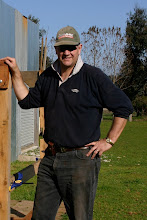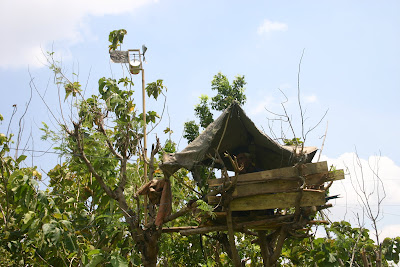The last few weeks has seen the Indonesian live cattle scandal explode and expire.
I think the main problem exposed by this affair is the disconnection most Australians have from animal reality - and the willingness of foolish bureaucrats and politicians to pander to nonsense - to the fairly immediate detriment of animals, farmers and common sense.
Let's get one thing clear at the start. I don't think it's ever a good idea for humans to mistreat animals. But it's an ill (at the extreme perhaps - an evil) just like a lots of other ills. We need to be careful that we don't turn our world upside down to solve one ill - at the cost of creating a series of other ills - worse than what we started with.
Let's remember that a domesticated cow is descended from what was always a prey animal. Its ancestors were chased, caught and killed by predators for millions of years - with nary a stun gun in sight. Cattle or sheep or chickens having a scary, gory, painful end is what they have always had.
When we kill domesticated (or other) animals 'humanely' we are doing it, I think, for two reasons:
- the meat of an animal that was not stressed at the time of slaughter tastes better; and
- in some way we (humans) are always diminished by cruelty.
My father and mother couldn't afford to be squeamish if they wanted to have the treat of what they then called 'poultry'. Between them, they had to kill a hen, pluck it, gut it, clean it, prepare it. Their grandchildren pick up the organic chicken from the supermarket or Deli - and just have to cook it.
The reality is that the life (and end) of the hen my parents put on our table in the 1960s was immeasurably better than that of the chicken my kids eat. Eight week life, unnatural food, unnatural housing, sub clinical dosing with antibiotics, grotesque body shapes, industrial slaughterhouses ... that's what produces the chicken we eat every day.
Sorry ... the organic chicken will have another week or two of life, slightly better food, slightly better housing, no antibiotics - and an industrial slaughterhouse.
I can't help but see the fuss over the way Indonesians treat cattle as ... mainly ... self indulgent (and hypocritical) squeamishness in a set of circumstances where the very real costs of that self indulgence are imposed on others.
[After discussing the following two paragraphs with my cultural adviser (my son), I've decided to add a warning. Only read on if you have heard of DH Lawrence.]
I'm reminded of the line in Lady Chatterley's Lover where Mellors observes to Connie (her in a state of undress) "An' if tha shits an' if tha pisses, I'm glad. I don't want a woman as couldna shit nor piss."
Mellors was enough in touch with reality to understand that humans (and animals) shit, piss ... and, one day, die.
F














 A well timed tug on the right strings - and the flocks of birds take fright - and fly on to another patch - when it's necessary to pull another string.
A well timed tug on the right strings - and the flocks of birds take fright - and fly on to another patch - when it's necessary to pull another string. 






